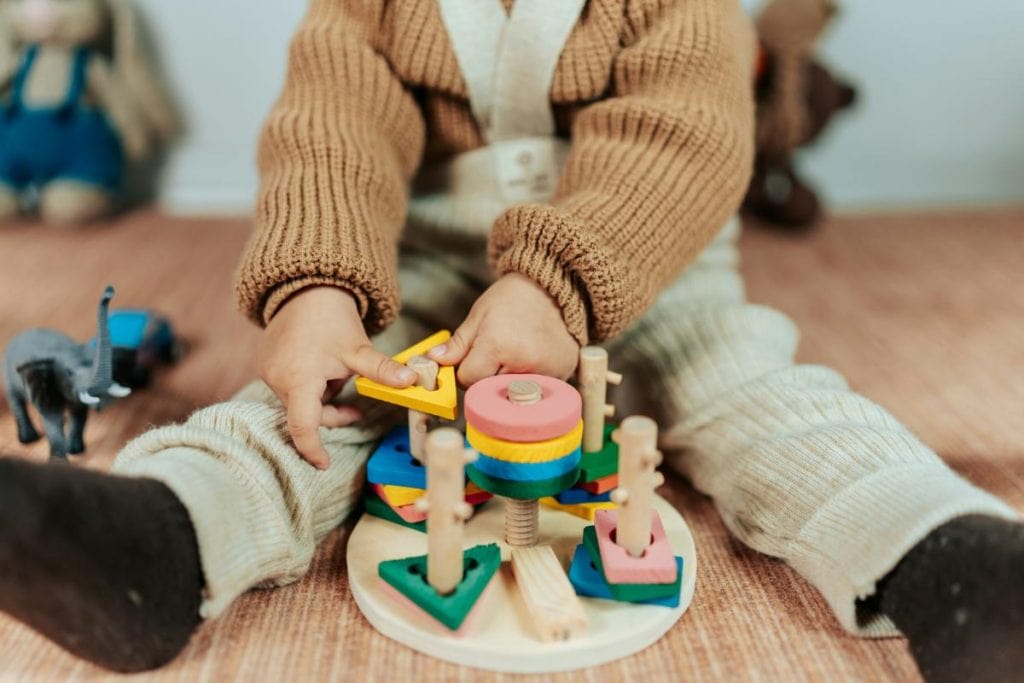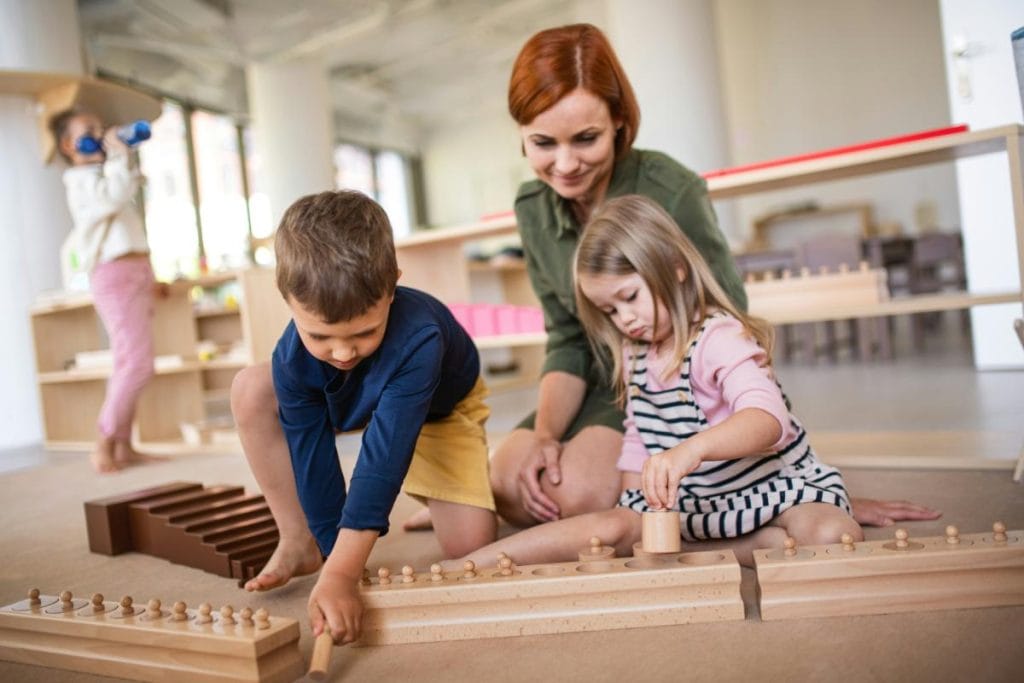As parents, we all want the best for our children. One of the most important decisions we make is choosing how they learn. Montessori education is a unique method that encourages children to be independent, confident, and curious. It is especially great for toddlers because it helps them learn through hands-on activities in a calm and structured environment. This guide will explain what Montessori education is, its benefits for toddlers, and how you can apply its principles at home.

What is Montessori Education?
Dr. Maria Montessori created Montessori education in the early 1900s. It is based on the idea that children learn best when they are given the freedom to explore and discover on their own. Instead of traditional classrooms with desks and teachers leading lessons, Montessori classrooms allow children to move freely and choose activities that interest them.
Key Principles of Montessori Education:
- Child-Led Learning: Children pick what they want to do based on their interests.
- Hands-On Activities: Learning happens through touch, movement, and play.
- Mixed-Age Classrooms: Younger children learn from older ones, and older children learn by teaching.
- Respect for the Child: Teachers act as guides instead of giving direct instructions.
Benefits of Montessori for Toddlers
Montessori education provides many benefits, especially for young children. Here are some key advantages:
Encourages Independence
Montessori classrooms are designed to let toddlers do things on their own. They learn to dress themselves, clean up after activities, and make choices about what to play with. This builds confidence and responsibility.
Develops Fine and Gross Motor Skills
Through activities like pouring water, stacking blocks, and using tweezers, toddlers improve their hand coordination. Running, climbing, and balancing activities help with larger body movements.
Supports Emotional Growth
Toddlers in Montessori settings learn patience, self-control, and respect for others. They are taught to handle emotions positively and express their needs calmly.
Builds Social Skills
Because children of different ages learn together, toddlers observe and copy older kids. This helps them develop better communication skills and cooperation.
Encourages Problem-Solving and Critical Thinking
Montessori toys and activities challenge toddlers to figure things out on their own. This helps develop problem-solving skills from an early age.
Montessori Classroom for Toddlers: What to Expect
Montessori classrooms look different from regular daycare centers. They are calm, organized, and filled with special materials that promote learning.
A Prepared Environment
Montessori classrooms are designed to be child-friendly. Everything is at toddler height, including shelves, tables, and chairs. Toys and learning materials are placed neatly so children can choose what they want.
Role of Montessori Teachers
Teachers in Montessori classrooms are called guides. Instead of giving direct lessons, they observe children and help when needed. They encourage toddlers to be independent and solve problems on their own.
Common Montessori Activities for Toddlers
- Practical Life: Pouring water, dressing themselves, washing hands.
- Sensorial Activities: Sorting objects by color, feeling different textures, matching shapes.
- Language Development: Learning new words, naming objects, matching pictures with sounds.
- Math Basics: Counting objects, arranging items by size, simple puzzles.
How Montessori Encourages Independence in Toddlers
Independence is one of the main goals of Montessori education. Here are ways it helps toddlers become more self-sufficient:
Freedom Within Limits
Montessori allows children to make choices, but within a structured environment. For example, a toddler can pick a toy to play with, but they must put it back when done.
Learning Self-Care
Toddlers in Montessori programs learn simple self-care tasks, such as dressing, brushing their teeth, and setting the table.
Structured Routines
Montessori encourages routines, like cleaning up after playtime and preparing food, which helps toddlers feel secure and responsible.
How to Implement Montessori at Home
You don’t need to send your child to a Montessori school to use its methods. Here’s how you can bring Montessori principles into your home:
Set Up a Child-Friendly Space
Create a space where your toddler can easily reach toys, clothes, and books. Keep items on low shelves and use child-sized furniture.
Allow Choices
Let your toddler make small choices, like picking their outfit or choosing a snack from two healthy options.
Encourage Hands-On Learning
Provide toys and activities that let toddlers explore and use their hands. Simple items like wooden puzzles, stacking cups, and sorting games work well.
Involve Toddlers in Daily Tasks
Let your child help with simple chores, like wiping the table, watering plants, or putting away groceries.
Limit Distractions
Montessori classrooms are calm and focused. Try to reduce background noise like TV and offer a quiet space for learning.

Choosing the Right Montessori School for Your Toddler
If you’re considering a Montessori school for your toddler here are some things to look for:
Well-Prepared Environment
The classroom should be organized, clean, and designed for toddlers to move freely.
Certified Montessori Teachers
Ask if the teachers are trained in Montessori methods. They should guide rather than instruct.
Mixed-Age Groups
A good Montessori school allows younger and older children to learn together.
Hands-On Learning Materials
Check if the school has Montessori materials like wooden puzzles, bead counting sets, and other hands-on activities.
Conclusion
Montessori education is a wonderful way to support your toddler’s growth, independence, and love for learning. Whether you choose a Montessori school or apply its methods at home, you give your child the tools to explore, think critically, and develop important life skills.
If you’re interested in Montessori education, visit a local Montessori school or try some activities at home. Watching your toddler grow and learn independently is one of the most rewarding experiences for any parent!
